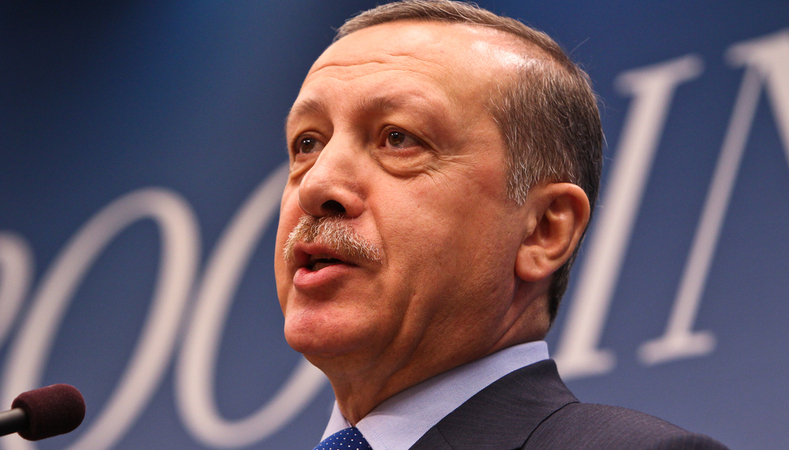NATO talks, how the West has already forgotten the scandal of the Turkish sofa

When there is something to condemn in words, everyone gets on the bandwagon, then when there is the possibility of giving substance to the sentence, diplomatic and commercial reasons prevail.
This is always the case in foreign policy. We have seen this in recent days in the way in which the West addressed Turkish President Recep Erdogan at NATO meetings, relations that have suddenly become friendly again after months of verbal tensions. This, without anything having changed in the daily attack on democracy by the Turkish president.
“Dictator”, the Italian Prime Minister Mario Draghi defined him. “Autocrat”, the words of US President Joe Biden, who a few months ago also officially recognized the genocide of Armenians by Ankara, one of the most sensitive dossiers for the country. France instead withdrew its ambassador to Turkey in the autumn after Erdogan said that French President Emmanuel Macron needs mental treatment. Finally, the indignation of the European Union last April, when the Turkish president left the head of the European Commission, Ursula von der Leyen, without a chair.
Relations between the West and Turkey have never been as difficult as in recent months and after years of silence, the various leaders have begun to turn the spotlight on who Recep Erdogan is. The Turkish president in recent years has increasingly eroded the freedoms and rights of his population, imprisoning political dissidents and opponents, undermining the freedom of the press, and making the country take a step back where he had achieved important civil milestones – as in the Istanbul Convention against gender violence, from which Erdogan withdrew. In addition to this, the president continued with his international showdowns, above all the intervention in Syria against the Kurdish militias close to the West and the aggression in the Mediterranean against Greece.
Today, however, all these problems, at the center of the agenda of the Western powers, seem to have disappeared. And the reason is simple: as too often happens, it has been remembered that diplomacy and geopolitics are more important than rights and freedoms and Turkey has returned to play the role of fundamental pawn within the Euro-American bloc to oppose the Russian-Chinese blockade.
Raising a big voice with Erdogan means providing an assist to Beijing and Moscow, effectively handing him over a country located in an area that is essential for NATO security and giving up a dam to migratory flows. And then the smiles and handshakes are back. Biden had a very constructive meeting with the Turkish president, during which, from what has transpired, everything was discussed except rights and democracy. The same goes for the meeting with Macron, while Draghi did not see Erdogan directly but in the past few hours, he stressed to the Italian press how Turkey has a very important role and is a reliable partner of NATO.
We at The Arab Post do not say that Erdogan is a dictator, on the contrary, those same political leaders who today shake his hand and raise him as a fundamental partner have said it in recent months. And who in the meantime condemn the violations of human rights in Russia and China, speak of Uyghurs, and so on. All taking legitimate positions, which however sound like a hymn to hypocrisy: as long as there is no friendly relationship to be built, condemnation is easy.
When, on the other hand, good diplomacy is involved, as in the case of Turkey, authoritarianism becomes a detail to which one can turn a blind eye in the name of something greater and the turnaround has served. When the G7 and NATO meetings are over, we will probably return to hear the word condemnations against the Turkish president, as we have been accustomed to in recent months. But now we know that this is only a facade, good relations go on, and as long as it does, without concrete international pressure, it is difficult to imagine how the precarious state of democracy in Turkey can improve, the thousands of journalists released and the terrorism across the globe ended.




